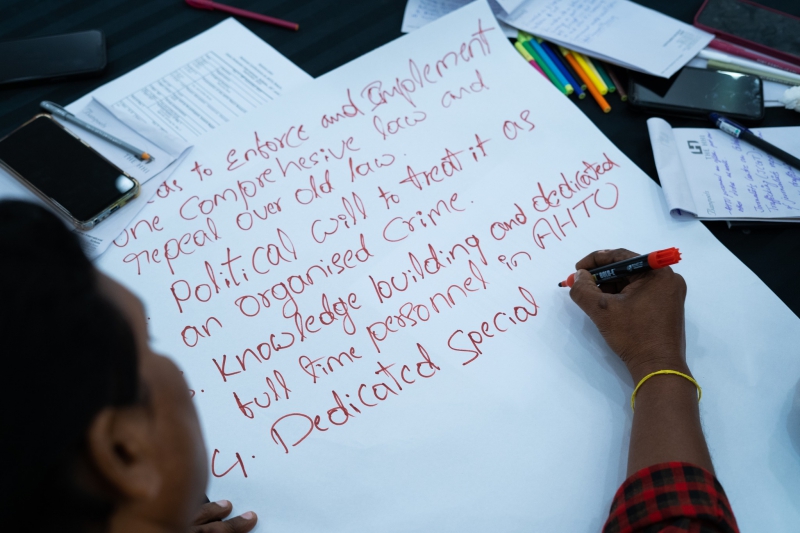Why are current AHTUs training not effective in their role taking? What will help in improving this?
Anti-Human Trafficking Units, commonly referred to as AHTUs, are specialised investigation units with the law enforcement that were created upon the directive of the Ministry of Home Affairs, Government of India, in 2008, by state governments in their respective states. The AHTUs were given the power to conduct interstate investigations for stronger prosecution in cases of human trafficking to break the impunity of traffickers in the entire chain of trafficking, and strengthen India’s response to incidence of trafficking.
Pan India research conducted in year 2022 by Sanjog a social impact organization, called the AHTU Watch clearly pointed out the reasons why AHTUs are not being able to conduct interstate investigations.
One of the major reasons for AHTUs not being able to conduct interstate investigation is due to the fact that the majority of trainings provided to the AHTU’s are based on the domain knowledge which is limited to intelligence gatherings, rescuing and communication procedures with the survivors. Hence when there is a need for interstate investigation the AHTU officials finds it difficult on how to proceed and more importantly whom to coordinate and collaborate within the system for executing the process. This has been confirmed by a Pan India Research called the AHTU Watch conducted in year 2022 by Sanjog a social impact organization.
(Majority of the AHTU officers during the time of interview shared their difficulty of doing interstate investigation in human trafficking case. One of the them gave an example of rescuing a victim who was a native from Andhra Pradesh and was trafficked to Mumbai. The officer when he had rescued the victim found out that the original trafficker was from AP and then sold her to the brothel in Mumbai. He knew to establish the chain of crime it was important to catch hold of the original trafficker from AP, however he failed to initiate the investigation as he was clueless in terms of whom to approach within the system and seek support for translation if he had to travel to AP. He therefore dropped the original trafficker’s name from the FIR). This was the narrative from all almost all the AHTUs and therefore confirms the reasons for the poor rate of convictions in cases of human trafficking since circumstantial evidences are not gathered to strengthened the prosecution.
The AHTU Watch Research also confirmed that currently there is no training done on system mapping – with whom from the system that one request support from or who can provide support so that officers can reach out to and do the necessary coordination. The leadership within AHTUs have also been quite dormant – despite high acquittals in cases of human trafficking there is a gap from them to understand the need for integration of system development. There is also an absence of standardized and comprehensive training modules which results in inconsistent training quality. Under such circumstances the AHTUs are mostly left to themselves to get trained on the jobs and therefore their interest and motivations are affected to perform their role diligently.
To ensure AHTUs trainings are effective the modules of the AHTUS trainings across states needs to be standardized and nuanced covering both the soft and hard skills aspect. There should be a feedback mechanism and regular evaluations of the trainings to identify what’s working and not working and what therefore needs to be done.
It is important for the leadership in law enforcement to demand for collaborations. There is a need to invest in system development for integration to streamline the processes and workflows reducing the time it takes to complete the tasks and increase overall productivity and efficiency. By automating certain processes AHTU officers can focus more on their core responsibilities, such as responding to emergencies and investigating human trafficking cases. Integrations will also allow different technologies to communicate and share data with each other, improving collaboration between law enforcement agencies and other stakeholders, such as prosecutors and courts. This can lead to more effective investigations, prosecutions, and convictions, as well as better-informed decision-making.
About the author: Nisha is a researcher and a specialist in how marginalised populations access entitlements and justice from the criminal justice system in India currently associated with Sanjog
